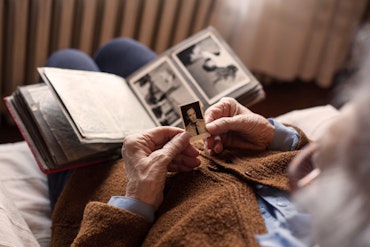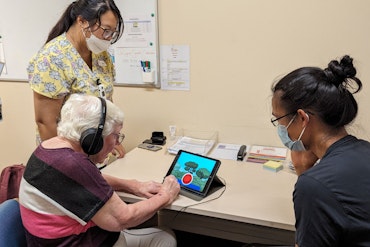The 17-year gap between research and results for dementia care
![<p>Applications for the Dementia Australia Research Foundation 2023 Grants Program are now open. [Source: Shutterstock]</p>](https://agedcareguide-assets.imgix.net/news/articles/wp/17researchresults.jpg?fm=pjpg&format=auto&w=550&q=65)
Applications for the Dementia Australia Research Foundation 2023 Grants Program are now open. [Source: Shutterstock]
Key points:
- ‘Dr Stuart and Bonnie Bartle Mid-career Research Fellowship 2022’ awardee, Dr Anita Goh said it can take up to 17 years for research evidence to influence clinical practice for dementia treatment
- New grants for dementia research in Australia have been announced, in addition to grant applications for 2023 opening
- The Dementia Australia Research Foundation had allocated almost $29 million dollars to support over 350 grants and fellowships since 2000
The Dementia Australia Research Foundation — the research arm of Dementia Australia — has announced that new and expanded grants are now open for applications, provided by the Bartle Pathway to Care initiative, in addition to a five-year Race Against Dementia Post-doctoral Fellowship.
The Dr Stuart and Bonnie Bartle Project Grant and a new Research Translation Grant in Dementia Care were created to fund research projects which strive to enhance the quality of care for people living with dementia, along with their families. Last year’s recipient of the Mid-career Research Fellowship, Dr Anita Goh, aimed to streamline the process from research to results in clinical practice, which she said can take “around 17 years.”
“In other words, researchers have found and tested things that work to improve outcomes — but, they are not well-known or are not being commonly used in the real world,” Dr Goh said.
“This grant will allow me to explore what it takes for organisations and people to — want to and then actually — change the way they provide care and what needs to be in place for this to happen.”
Dr Goh’s recognition of the lag in incorporating research outcomes for the treatment of dementia is a widespread concern, which has impacted people such as former Rugby League player, Wally Lewis, Member for the Order of Australia [AM].
Mr Lewis is an icon of the sport, renowned for carrying Queensland to victory in the State of Origin and playing 33 Rugby League tests for Australia during the 1980s – ‘90s. Notably, Wally was inducted into the Australian Sports Hall of Fame, in addition to his title as ‘Best Player in the World,’ which was awarded in 1984.
Dementia Australia Chief Executive Officer [CEO] Maree McCabe, AM, commended Wally for his inspiring advocacy and transparency with the public following his chronic traumatic encephalopathy [CTE] diagnosis.
“[CTE] can be avoided or minimised by preventing head injuries and managing head injuries and concussions effectively by following evidence-based, best practice guidelines,” Ms McCabe said.
“We need national guidelines for contact sports. Current protocols and practices for managing head injuries in a range of Australian sporting codes across all age groups and at amateur and professional levels, are not always guided by or consistent with, current evidence-based findings.”
CTE is a type of dementia where repeated concussions or other head injuries can affect someone’s brain function over time, with veterans, survivors of domestic violence and participants of contact sports at risk.
“CTE can happen to anyone,” Ms McCabe added.
Chair of the Dementia Australia Research Foundation Professor Graeme Samuel, Council for the Order of Australia [AC], encouraged researchers to consider applying for one of the available grants, to enrich the realm of research.
“By supporting up-and-coming researchers, we will be able to target the brightest new minds whilst at a critical crossroads for choosing a research path,” Professor Samuel said.
“This means that we are not only supporting them to solve another piece of the dementia puzzle now, but hopefully cementing their career-long focus on dementia research.”
Applications for the annual Dementia Australia Research Foundation Grant Program close on August 21, 2023.
If this story has prompted any questions or concerns, please call the National Dementia Helpline — 1800 100 500, available 24/7 or visit dementia.org.au.























